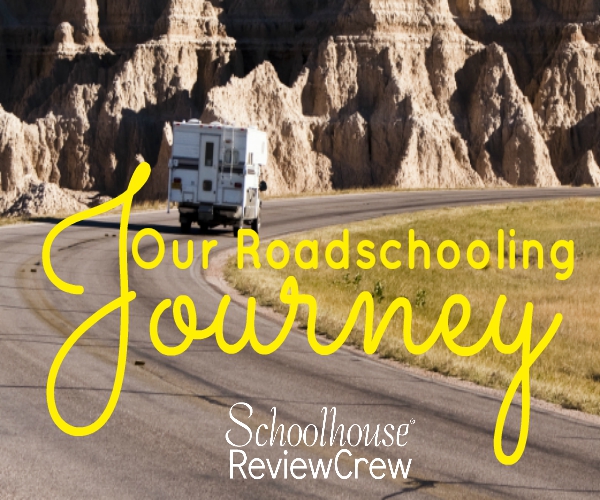Roadschooling : a form of homeschooling that involves traveling, allowing the places and experiences to drive learning (compatible with, but not the same as, Unschooling)
My husband’s job requires full-time travel, but at the detriment of our family. Or at least, it used to be that way. Three years ago, we pulled the kids from school and hit the road with him! What a nerve-wracking decision!
Until then, our children had no bond with Daddy. He was a stranger that occasionally showed up and “changed the rules.” (Hey – Momma can only pick so many battles alone!) Also, we were struggling with the public schools – in particular, our special needs child was severely falling behind, and we saw no light at the end of the tunnel. Going on the road with him offered a change, and put both of those variables directly into our hands.

Given our experiences, we would now recommend road-schooling to all families.
- Fill the gaps. You may not study NASA in a regular year,
but if you’re going to meet an astronaut in Houston, it only makes sense. - Peak their interests. Most children aren’t interested in architecture, but when they visit the
Biltmore House, Overholser Mansion, and Cornwall Iron Furnace, each with their
distinct styles, they suddenly want to learn more! - Learn something new. Two words : Factory Tour. We’ve
learned to make cheese, maple syrup, ice cream, chocolate, pretzels…hmm…maybe we should
learn about more than food… - New friends. The kids can talk to anyone, and love to meet new kids! They can also manage a sales table fairly independently. These are life skills.
There are a few caveats, however. If I had to tell myself a few pointers three years ago…
- Know the requirements.
Follow the homeschool requirements of your home state, regardless of where you are currently located. To be safe, you may want to check with Homeschool Legal Defense Association to make sure that you are completing all
homeschool requirements.
- Plan ahead. Learn about the area you’re visiting – check for
museums, events, festivals, factory tours, and anything relevant to that specific location. Websites will often have free educational resources to help guide your field trip. - Keep records. Field trips count as school days, but you want to have ‘regular’ days in there also. One day, you’re going to be
accountable for that education. This is one of the reasons that we started our blog – it allows us to document where we’ve gone and what we’ve seen. It also allows us to connect with families in our current location, which is very nice! - Don’t get a boxed curriculum. These are great in the traditional
homeschool, but take up so much space in the car. We use (or create) materials to accompany what we’re studying. I’ll usually share these in a unit study on the blog page. See the record-keeping in action? Plus, it helps other families who may be travelling to the same location. …..and it takes up much less space! - Relax. We school through the summer, on the weekends, at midnight…pretty much whenever we want. We get more than the required days in, and that’s fine. We have a lot of field trip days, too. Want to know which style helps the kids learn and retain the most? Life experiences, of course!
 sick of each other and want space. There are days when we’re sick of being on the road and want to be home.
sick of each other and want space. There are days when we’re sick of being on the road and want to be home.And there are days when we’re just plain sick. Nothing is perfect. But seeing the children experience this great country from sea to shining sea, having them enjoy the learning process, and watching them find and follow new passions is worth any minor inconveniences.
destination!”

